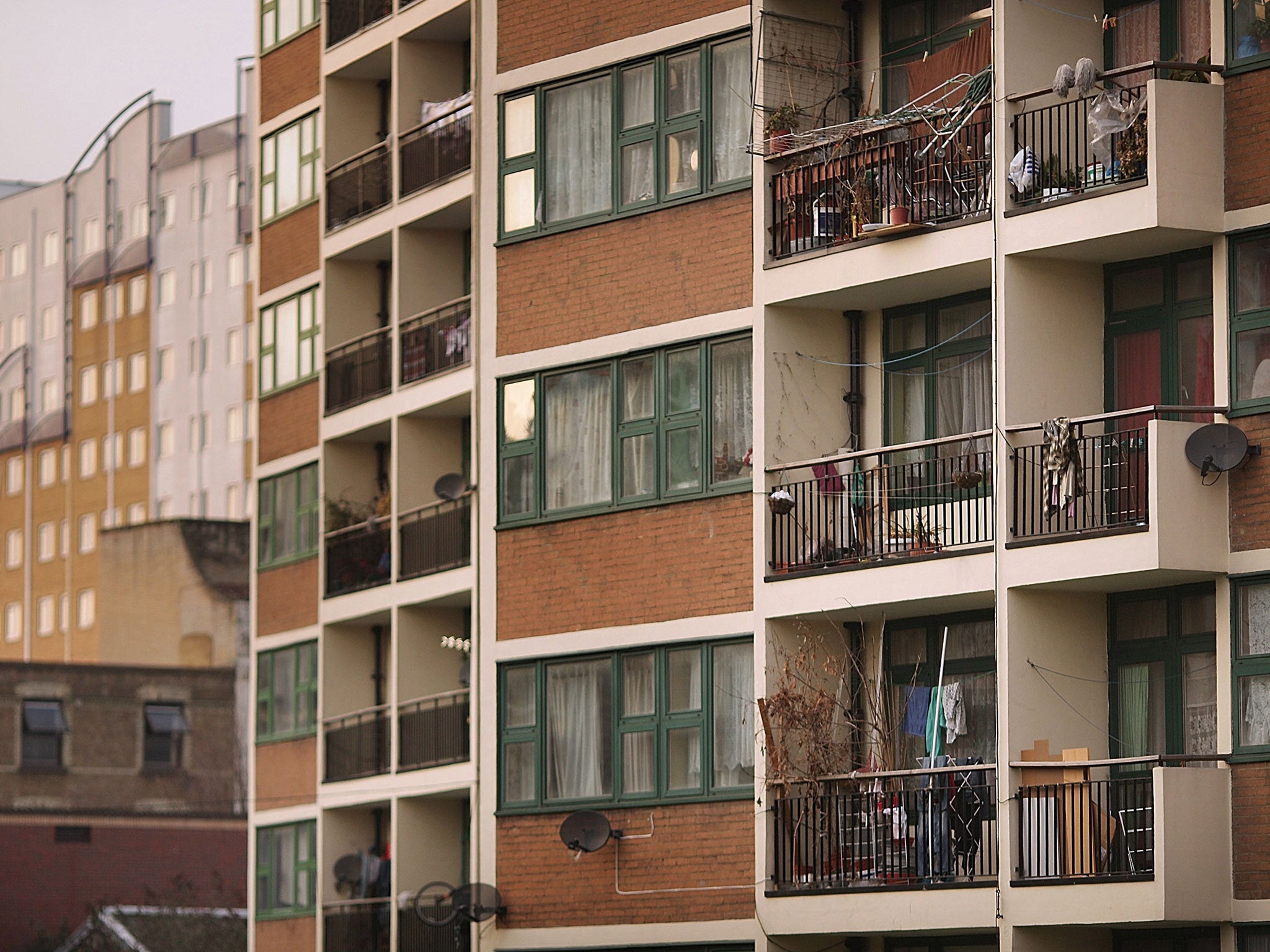Tenants face eviction over controversial ‘bedroom tax’
Thousands could lose their homes as councils and housing associations begin a clampdown on those in rent arrears

People struggling to pay their rent because of the so-called “bedroom tax” are already being threatened with possible eviction just weeks after it came into force.
Thousands of people face losing their homes as councils and housing associations begin a clampdown on those in rent arrears. Councils in many areas began sending notice of arrears letters within weeks of the reform coming in on 1 April, many of which threaten eviction in the long-term if rent is not paid.
Tenants in Barnsley and Leeds told The Independent that their housing authority had told them their homes were at risk, while nearly a thousand people have received notice of arrears letters in Bradford.
In the latest indication of how benefit reforms are affecting vulnerable households, housing authorities reported large numbers of tenants simply unable to pay the extra rent.
Queens Cross Housing Association in Glasgow reported that 226 of the 291 tenants affected by the bedroom tax had been unable to pay, while in Nottingham, more than a third of the local housing association’s tenants now owe money for their rent. Manchester’s Southway Housing Trust reported that 650 social housing tenants had seen an increase in arrears.
Portsmouth City Council said that 300 people were now in arrears. Tenants in Ayrshire, Brighton and South Lanarkshire have all received letters threatening eviction if shortfalls are not paid.
Southway Housing’s contact centre manager Luke Benfield said: “Our greatest fear is that, pressurised by the bedroom tax and eventually by universal credit, people will turn to loan sharks and door-step lenders and short-term loans to cover living expenses, trapping them in a cycle of debt.”
The bedroom tax has affected around 600,000 people nationwide, who have seen an average of £14 a week cut from their housing benefit. Fourteen per cent of a tenant’s housing benefit is removed for having one spare bedroom and 25 per cent for having two or more spare.
Carol O’Keefe, 44, from Leeds, was living on the streets before being assigned a two-bedroom property by the council. She now owes her housing association, North West Homes, £41 in arrears because her second bedroom has been assessed as a spare room. She has been told her home is “at risk”. “I said to my local councillor, ‘Do you want to see me on the street again? ” she said.
In South Lanarkshire, the council leader was forced to apologise earlier this month after letters were sent to residents threatening eviction. Eddie McAvoy insisted that there would be “no evictions of people who engage with us and whose arrears are solely the result of the ‘bedroom tax’”.
In Brighton, an anti-bedroom tax campaigner was among the first to receive a letter threatening eviction – despite the Green-led council adopting a “no eviction policy”. Maureen Pilbeam, a mother-of-five who has lived in a three-bed house for nearly 30 years, was warned she owed £178.78 in unpaid rent because of the bedroom tax.
A disabled resident in Barnsley, South Yorkshire, who asked to remain anonymous, contacted The Independent to say that he had received an arrears letter warning him of the possibility of eventual eviction proceedings last month. He said he was expected to move into a one-bedroom flat with his partner and vacate the three-bedroom property where they had lived for the past 10 years.
Despite being in receipt of disability living and care allowance for a spine condition he said he was struggling to find the additional £21 a week.
A temporary discretionary payment of £9.83 was failing to cover the cut in housing benefit. He said he had no chance of challenging the eviction process. “We wouldn’t stand a prayer because we can’t get legal aid,” he said.
Ken Butler, welfare rights officer for Disability Rights UK, said ministers had claimed there would be no evictions as a result of the change in the law. “The amount of money that the Government has made available to fund discretionary housing payments is not sufficient to reach the shortfall,” he said.
Research by the National Housing Federation found that if the £30m of discretional housing payments was distributed equally among every claimant of disability living allowance affected, they would each receive only £2.51 per week.
The Pensions minister Steve Webb said earlier this month: “There are no indications that evictions will result from the removal of the spare room subsidy.” Mr Webb added the initial findings of a study commissioned to look at the impact of the tax would be published in 2015.
Join our commenting forum
Join thought-provoking conversations, follow other Independent readers and see their replies
Comments